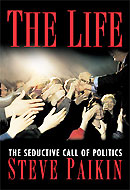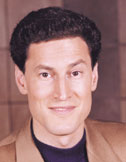

|
What keeps politicians coming back for more? Certainly, it’s not the public’s respect for what they do. Can the monotony of dealing with a myriad of constituents’ problems really be all that satisfying? Do they ever really enjoy wielding power? And why do some high-ranking superstars in public life never seem to be able to equal that success after they leave politics for the private sector? |
|
What motivates these people to invite public scrutiny, endanger their marriages, alienate their friends, and court exhaustion? Steve Paikin has spent a career covering politics. For this book, he interviewed nearly one hundred politicians who were attracted to politics for various reasons. Some feel politics is a crusade. Some see it as the family business. A few see themselves as pioneers blazing new trails. Others fall into The Life quite by accident. We hear from Brian Mulroney, William Davis, Peter Lougheed, David Peterson, Kim Campbell, Audrey McLaughlin, Lewis MacKenzie, Tom Long, Jason Kenney, Pierre Marc Johnson, Sharon Carstairs, David Smith, John Laschinger, Glen Murray and many more.
We hear from Brian Mulroney, William Davis, Peter Lougheed, David Peterson, Kim Campbell, Audrey McLaughlin, Lewis MacKenzie, Tom Long, Jason Kenney, Pierre Marc Johnson, Sharon Carstairs, David Smith, John Laschinger, Glen Murray and many more.The Life is filled with fascinating stories of political life, direct from one-on-one interviews with the politicians themselves. If you’ve ever wondered what motivates these people to step up to the plate, here are the answers – and they may surprise you. The editors of CanadaInfo are pleased to have been able to contribute to Steve Paikin's research for his new book, The Life: The Seductive Call of Politics. This is a great book by a very knowledgeable political commentator and we highly recommend it to anyone.
IntroductionWhen William Grenville Davis retired as the longest-serving premier of Ontario in the twentieth century, he was at the top of his game. He was enjoying unprecedented popularity, which is saying a lot for a man who’d already won four elections and held one of the most coveted political jobs in the country. There was no question that, had Davis decided to run for a fifth mandate, it would have been his. And yet, on Thanksgiving weekend in 1984, Davis told his family he’d had enough. He’d been at Queen’s Park for twenty-five years, fourteen of them as premier. He knew he could stay on and win another election. But he also knew he could never look the public in the eye and commit to serving even close to a full term. It just wasn’t in him anymore. So rather than call the election which would certainly preserve an already four-decades-old Tory dynasty in Ontario, Bill Davis quit politics with barely a thought as to what he’d do next.Two years later, in October, 1986, I sat down with Davis in his new professional surroundings --- the law offices of Tory Tory DesLauriers and Binnington, on the thirty-second floor of the Toronto-Dominion Centre. The first thing one notices is that Bill Davis’ office as premier of Ontario is about ten times the size of Bill Davis’ office as a senior law partner. It’s strange to see the man who was premier since I was eleven years old in such under-whelming surroundings. Nevertheless, we do our interview for CBC-TV on whether there’s life after politics for Bill Davis. Apparently, there is. "I think I maybe exaggerated a little bit in my own mind the extent of the trauma,” he tells me. “As a result, I’ve been pleasantly surprised because it has not been as difficult for me as I thought it might have been.” The unprecedented way in which this former politician has been courted by the business community has, no doubt, eased the transition. Less than two years out of office, Davis is already firmly ensconced in one of the country’s most prestigious law firms. He’s sitting on eleven different boards of directors. He’s jetting all over North America for meetings. He’s probably earning more than he ever thought he would --- probably at least three times his salary as premier. And best of all, no cranky reporters or opposition politicians to answer to. I tell him from where I’m sitting, things presumably couldn’t be better. "Steven, let me tell you something,” he starts. “This job, on the most exciting, interesting day can’t touch being premier of Ontario on the dullest.” Excuse me? How can a life that provides a huge salary, where you rub shoulders with the most influential movers and shakers in the private sector, where you’re still revered as an historic figure of influence…how can that not compare to the discredited world of politics? Davis reminds me that during his six years of leading minority governments, “There was nothing more thrilling than coming to work every day, knowing the entire government could collapse if you made a mistake.” Even Brian Mulroney, whose success in the private sector both before and after he became prime minister is unrivalled in Canadian political history, shares Davis’ view. "I’d have to agree with Bill,” he told me over the phone, as we were trying to nail down a time to meet. “If you’ve been the prime minister or the premier, your agenda is the country’s agenda. In the private sector, your agenda is of little consequence to anyone but you.” Peter Lougheed, perhaps the only provincial first minister of the last quarter century with a record equal to or better than Davis’, echoes the sentiments. "I think Bill puts it very well,” Lougheed says. “I would say the most insignificant day being Premier of Alberta for fourteen years was still more interesting than any other day that I’ve spent before or after.” I’ve covered politics in Canada for almost twenty years now. I’ve spoken to thousands of people engaged in the political process. But that comment of Bill Davis’ has consistently intrigued me. What is it about public life that’s so alluring to so many? From the outside, it often seems like a miserable, thankless job. Voters hate politicians and the feeling is often mutual. Media coverage frequently portrays politicians as slimy, unprincipled, egomaniacs who are only out to feather their own nests, their constituents’ needs be damned. So what’s the attraction? When I told Floyd Laughren, Ontario’s Finance Minister from 1990-95, that I intended to interview nearly one hundred current and former politicians for this project, he answered, “Why would you want to spend a year talking to a bunch of psychopaths?” I think he was only partly kidding. David Goyette, who’s served as a political consultant to more than seventy politicians over the years, calls public life “an emotional addiction.” "It’s an addiction about ego, about the exercise of power, about being perceived as an important person in your community. It’s self-aggrandizement, and that’s a good thing. You can’t survive without it. You can’t be a leader without an ego --- being able to say how I think the world should be.” Well, here’s my dirty little secret which no self-respecting journalist is ever supposed to admit. I like politicians. Yes, some of the them are corrupt, evil, vain, ignorant, incompetent, and a whole bunch of other terrible things. But some of them are also inspiring. Some of them live lives of such intense drama on a daily basis, one can’t help but admire them. Like it or not, they do blaze trails. They do have important jobs. And when they get things done --- even the small, seemingly insignificant things --- they can change our lives. This, and more as you will read, is the siren song of “The Life,” as former New Brunswick premier Frank McKenna called it. For some, politics is the family business. It’s becoming more and more common to see children following in their parents footsteps. Voters may have a hard time buying this, but many people get into politics for the most altruistic of reasons. That’s not to say they’re absent of ego or haven’t learned how to play hardball. It is to say they are truly motivated by noble causes, and haven’t entered politics as a stepping-stone to something more lucrative after it’s all over. There are the politicians who’ve yearned for The Life since they were teenagers, and others who were simply attracted to the game out of a sense of public spiritedness and because they found out they were good at it. Of course, there are those who have found themselves chewed up and spit out by rules of engagement which can be extremely harsh and unforgiving. And yet, they run again, and again, and again. Their stories, their different experiences, can all be found between the covers of this book. On September 6, 1990, Ontario voters were handing Premier David Peterson the shock of his political life. Peterson’s astonishing landslide victory three years earlier was disintegrating, to be replaced by the province’s first ever NDP government under Premier Bob Rae. Lyn McLeod, a Liberal cabinet minister, who survived the shellacking and eventually became Peterson’s successor, watched the debacle unfold from her campaign headquarters in Thunder Bay. At one point in the evening, McLeod’s oldest daughter Dana said, “Why would you want anyone you love to do this?” Dana, I hope this book answers your question. Steve PaikinSteve Paikin hosts two programs on TVOntario, the largest educational television network in the world.He is co-host of Studio 2, a nightly current affairs program now in its eighth season.  He also co-created and hosts Diplomatic Immunity, a weekly program specializing in foreign affairs. The show is now in its fourth season.
He also co-created and hosts Diplomatic Immunity, a weekly program specializing in foreign affairs. The show is now in its fourth season.Studio 2 is an hour-long program which tries to put into context the issues affecting Ontario's 11 million citizens. It focuses on provincial, national, and international affairs, sports, the arts, culture, and economics. Its motto is "Death to Soundbites," a reference to the 20- and 30-second clips which make up so much of the news and current affairs programming landscape. In 1993, Paikin completed his first feature-length documentary --- Return to the Warsaw Ghetto --- on the occasion of the 50th anniversary of the ghetto uprising. He has also produced feature-length documentaries on the life of former Ontario Premier William Davis ("A Main Street Man"); the disintegration of Yugoslavia ("Balkan Madness"); and the Conservative government's controversial education reform Bill 160 ("Teachers, Tories, and Turmoil"). He is currently producing a feature documentary on the life of former Ontario Premier John Robarts, to be broadcast on TVOntario in November. Steve Paikin was born in Hamilton, educated at the University of Toronto and Boston University, and lives in Toronto. "The Life: The Seductive Call of Politics" is his first book. |
